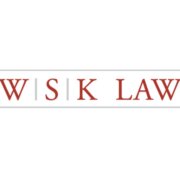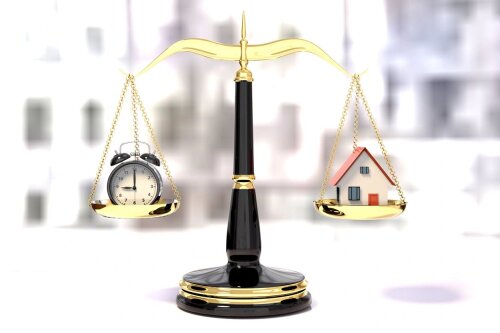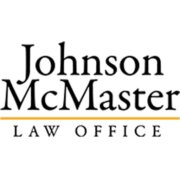Best Real Estate Lawyers in Cambridge
Share your needs with us, get contacted by law firms.
Free. Takes 2 min.
Free Guide to Hiring a Real Estate Lawyer
List of the best lawyers in Cambridge, Canada
Canada Real Estate Legal Articles
Browse our 1 legal article about Real Estate in Canada written by expert lawyers.
- Buying Property Abroad as a Canadian: A Legal Checklist
- Real estate law in Canada is mostly provincial, so rules on land registration, landlord-tenant rights, condos/strata, and land transfer tax differ by province and territory. For a typical home purchase, budget roughly 2% to 5% of the purchase price for closing costs in addition to your down payment, including land... Read more →
About Real Estate Law in Cambridge, Canada
Real estate law in Cambridge, Ontario, Canada, governs the purchase, sale, leasing, and use of land and property within the city. This branch of law covers both residential and commercial real estate and includes issues such as buying or selling a house, property transfers, mortgages, zoning, land development, and tenancy agreements. The rules are designed to protect buyers, sellers, landlords, tenants, and investors by ensuring that all parties follow legal procedures and fulfill their obligations. Given the dynamic and growing nature of Cambridge's real estate market, it is important to be aware of the laws and regulations that guide property transactions in this region.
Why You May Need a Lawyer
Real estate transactions can be complex, and even small mistakes may have significant legal or financial consequences. Here are some common reasons why you might need a real estate lawyer in Cambridge:
- Buying or selling a home, especially for the first time.
- Reviewing or preparing purchase and sale agreements.
- Interpreting and negotiating lease agreements for residential or commercial properties.
- Handling mortgage documentation and refinancing processes.
- Resolving property boundary disputes or title issues.
- Navigating land development, severance, or zoning applications.
- Dealing with foreclosure, power of sale, or repossession scenarios.
- Protecting your interests during private sales or new builds.
- Managing estate matters involving property inheritance or transfers.
- Ensuring compliance with municipal and provincial property laws.
Legal guidance can help you avoid costly errors, minimize risks, and ensure that your real estate transaction proceeds smoothly and legally.
Local Laws Overview
Real estate law in Cambridge is shaped by federal, provincial, and municipal regulations. Specific areas of local importance include:
- Land Transfer Tax - Ontario charges a land transfer tax on property transactions, which buyers must pay upon closing.
- Title Registration - The Land Titles Act and Registry Act require all property transactions to be registered to establish legal ownership.
- Municipal Zoning and Bylaws - The City of Cambridge enforces zoning bylaws specifying land use, allowable building types, and development guidelines.
- Condominium Rules - Condo sales and ownership are regulated by the Ontario Condominium Act, which covers boards, management, and owner rights.
- Residential Tenancies - Landlord and tenant relationships are governed by the Residential Tenancies Act, with specific rules for rent, maintenance, and tenant eviction.
- New Home Construction - The Ontario New Home Warranties Plan Act provides protections and warranties for buyers of newly built homes.
- Environmental Regulations - Local development and use are subject to environmental assessment and heritage preservation bylaws.
Understanding these regulations is crucial, as non-compliance can result in fines, delays, or complications with ownership and use of property.
Frequently Asked Questions
What is the first step in buying property in Cambridge?
The first step is usually securing mortgage pre-approval so you know your budget, followed by hiring a real estate agent and lawyer to assist with your search and transaction.
Do I need a lawyer to buy or sell a house in Cambridge?
Yes, in Ontario, it is required to use a lawyer to complete the legal process of transferring property title and handling necessary documentation.
What taxes apply to real estate transactions?
The most common tax is the land transfer tax paid by buyers at closing. There may also be municipal property taxes and, for new homes, the harmonized sales tax (HST).
What are closing costs?
Closing costs include legal fees, land transfer tax, title insurance, adjustments for property taxes or utilities, and, if applicable, mortgage and appraisal fees.
How can I verify clear property title?
Your lawyer will conduct a title search to ensure there are no liens, encumbrances, or disputes affecting the property.
What should I know about condominium purchases?
Condo buyers receive a status certificate outlining the building's financial health, rules, and any major repairs pending, which your lawyer should review before closing.
What are my rights as a tenant or landlord?
Tenant and landlord rights are established by the Residential Tenancies Act, including security of tenancy, rent increases, and obligations for repairs and maintenance.
How do I resolve boundary or neighbor disputes?
A real estate lawyer can review land surveys, title deeds, and negotiate with your neighbor or represent you in legal proceedings if needed.
Is title insurance necessary?
Title insurance protects against unforeseen property defects, such as survey errors or undiscovered liens. It is strongly recommended and sometimes required by lenders.
Can I buy or sell property directly without a real estate agent?
You can, but it is still essential to use a lawyer to draft and review all documents, ensure legal compliance, and protect your interests in the transaction.
Additional Resources
For further information and support, consider the following organizations:
- City of Cambridge Planning Department - Provides guidance on zoning, permits, and local bylaws.
- Ontario Ministry of Municipal Affairs and Housing - Oversees housing policy, landlord and tenant rights, and development regulations.
- Ontario Land Registry Office - Maintains land title and property documents.
- Tarion Warranty Corporation - Administers new home warranties across Ontario.
- Ontario Real Estate Association - Offers resources for buyers, sellers, and realtors.
- Legal Aid Ontario - Provides legal assistance for those who meet eligibility requirements.
These resources can help you find answers to specific questions, access legal forms, and connect with professionals or government representatives.
Next Steps
If you need legal assistance with a real estate matter in Cambridge:
- Gather all relevant documents, such as agreements, property listings, surveys, and correspondence.
- Identify your goals and any concerns regarding your transaction or property issue.
- Research and contact a qualified real estate lawyer who practices in Cambridge and is experienced in the type of matter you are facing.
- Schedule a consultation to discuss your case, understand your legal options, and plan the next course of action.
- Follow your lawyer's advice and make sure to ask questions if you need clarification.
Starting with legal advice early in your real estate process can save you time, money, and stress. Do not hesitate to reach out to a professional if you are unsure how to proceed with your property-related needs in Cambridge, Canada.
Lawzana helps you find the best lawyers and law firms in Cambridge through a curated and pre-screened list of qualified legal professionals. Our platform offers rankings and detailed profiles of attorneys and law firms, allowing you to compare based on practice areas, including Real Estate, experience, and client feedback.
Each profile includes a description of the firm's areas of practice, client reviews, team members and partners, year of establishment, spoken languages, office locations, contact information, social media presence, and any published articles or resources. Most firms on our platform speak English and are experienced in both local and international legal matters.
Get a quote from top-rated law firms in Cambridge, Canada — quickly, securely, and without unnecessary hassle.
Disclaimer:
The information provided on this page is for general informational purposes only and does not constitute legal advice. While we strive to ensure the accuracy and relevance of the content, legal information may change over time, and interpretations of the law can vary. You should always consult with a qualified legal professional for advice specific to your situation.
We disclaim all liability for actions taken or not taken based on the content of this page. If you believe any information is incorrect or outdated, please contact us, and we will review and update it where appropriate.
Browse real estate law firms by service in Cambridge, Canada
Cambridge, Canada Attorneys in related practice areas.











